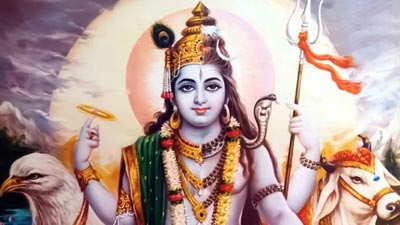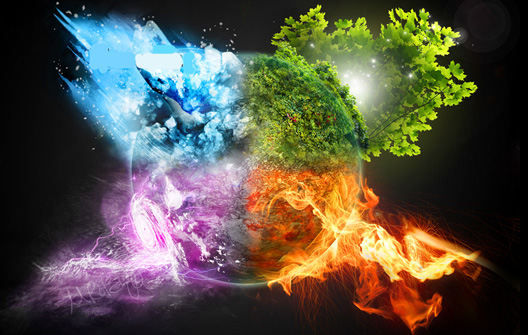The three gunas
According to the Ayurvedic and yogic scriptures, the mind is a subtle energy field, and is continuously reacting to the information we receive from the physical senses. The three gunas—sattva, rajas, and tamas—are the three energies of the mind. They can be balanced using pranayama and asanas, and that balance can be deepened using mental exercises.
Keeping the mind healthy
As we condition our physical bodies through diet and exercise, our minds are conditioned by the information we receive, whether from friends, family, teachers, or culture, as well as through the type of food we eat. The nature of the mind is inherently sattvic—clear and harmonious. However, by experiencing negative thoughts and emotions, such as greed and fear, or eating an unhealthy diet, the mind loses its pure quality and becomes rajasic (restless and agitated) or tamasic (lethargic and resistant). A person’s mental health depends on how much sattva has been developed in his or her mind. The predominance of rajas and tamas often leads to psychological problems. The goal of both yoga and Ayurveda is to make sattva the predominant guna in the mind. Positive thinking and meditation, remove rajas and tamas, and increase sattva, calming and uplifting the mind.
THE GUNAS AND THE DOSHAS
Regardless of the dominant dosha(s) in a person’s constitution, he or she should always be attempting to increase sattva to keep the mind healthy. However, the doshas and gunas combine to affect personality. For example, a person with vata in their constitution may be enthusiastic when sattvic, anxious when rajasic, or depressed when tamasic.
SATTVA (harmony and clarity)
This is the energy of harmony and clarity. It brings stability, contentment, and peace, as well as revealing truth, making us feel centered and strong. Sattva is dominant in a healthy mind. Under the influence of sattva, a person might be:
- adaptable
- eloquent
- enthusiastic
- positive
- courageous
- independent
- intelligent
- sympathetic
- calm
- contented
- devoted
- humble
RAJAS (movement and agitation)
This is the energy of movement, agitation, expansion, and passion. It is needed to bring change, but can delude us into thinking happiness is provided by external pleasures. Excess rajas causes hyperactivity, causing tension and fatigue. Under the influence of rajas, a person might be:
- anxious
- indecisive
- restless
- unreliable
- aggressive
- judgmental
- manipulative
- vain
- compulsive
- dependent
- jealous
- materialistic
TAMAS (inertia and contradiction)
This is the energy of inertia, contradiction, and darkness. It is the power of ignorance that makes us resist positive change and creates indifference to our own and other people’s well-being. In excess, it causes lethargy. Under the influence of tamas, a person might be:
- depressed
- dishonest
- prone to
addiction
- submissive
- destructive
- dull
- hateful
- judgmental
- apathetic
- lethargic





